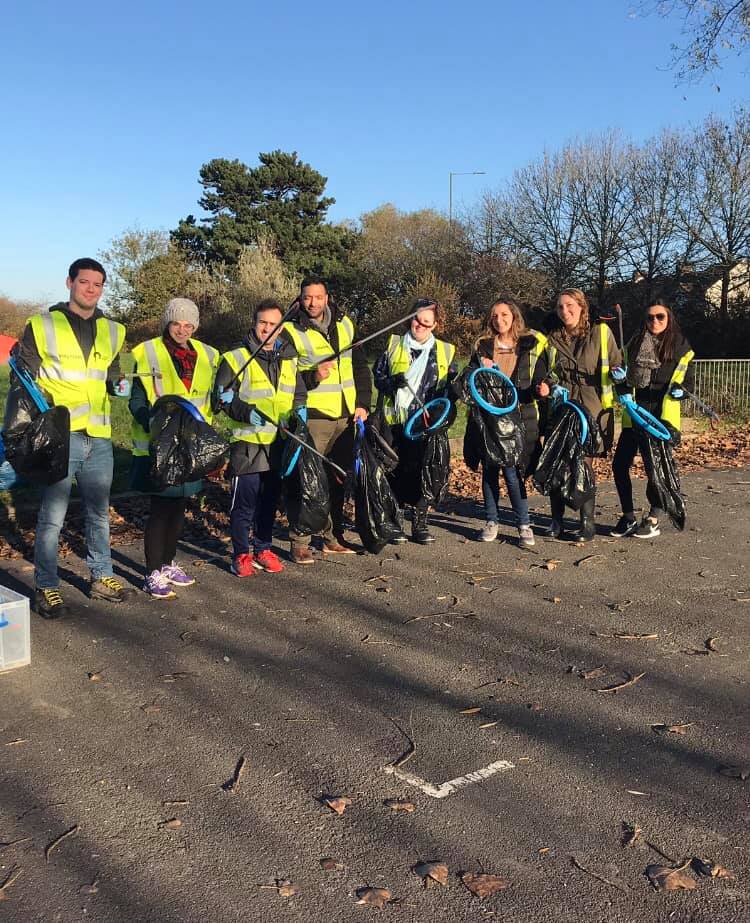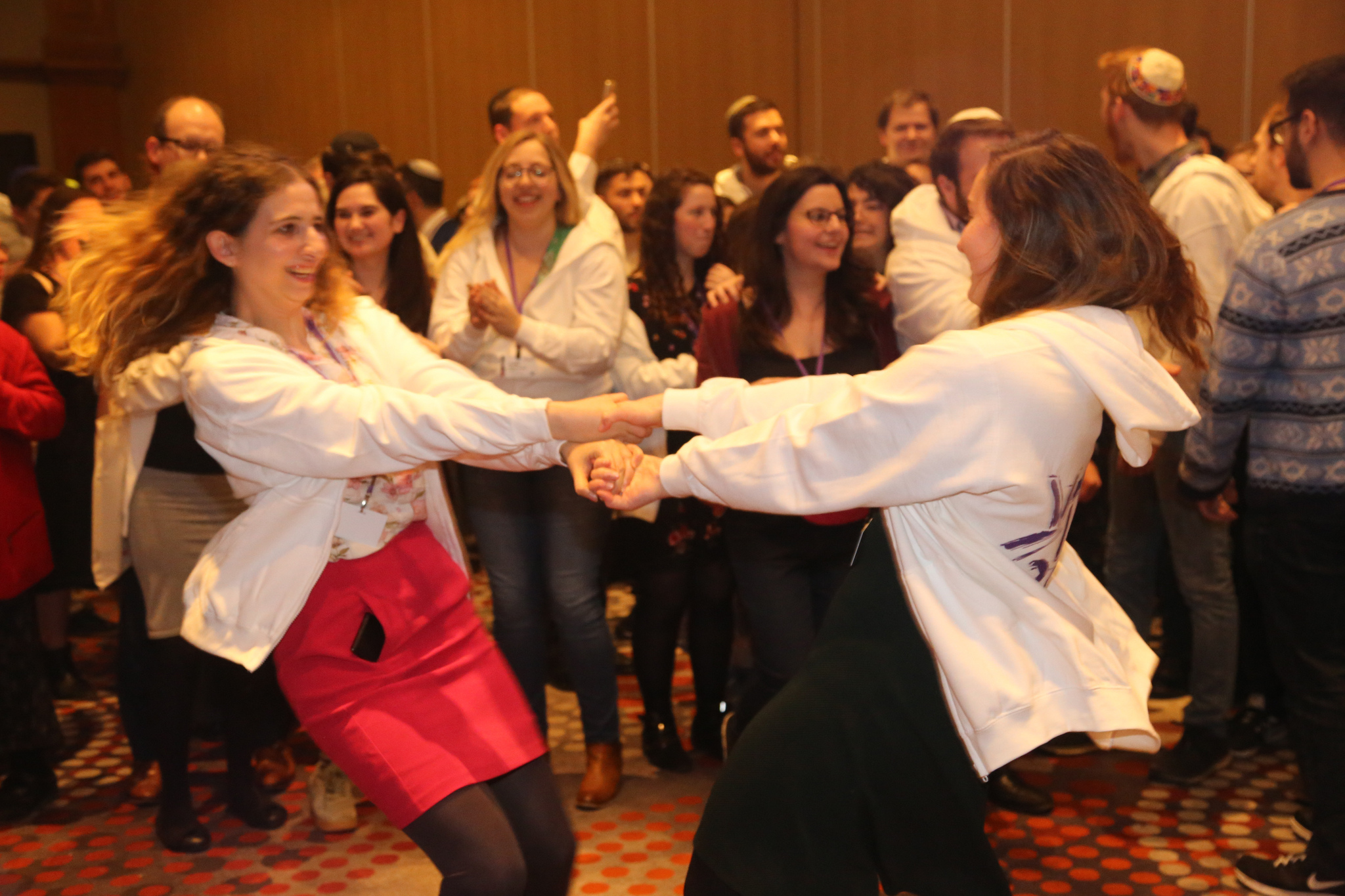The dramatic shift in religious identity among educated Jews
Stats from more than two decades of academic research shows that 'well educated' members of the community have a weaker attachment to their Jewish identity
Data from 20-plus years of institute for Jewish Policy Research surveys shows the “very well educated”, defined as those in the Anglo-Jewish community with at least an MA, have weaker attachment to Jewish identity, religious behaviour, marriage choices and perceptions of Israel than the less well educated, defined as those without a degree. That was the conclusion drawn from the recent piece of research by Jewish community sociologist Prof. Stephen Miller, of City University
Only 35 percent of Masters graduates think a Jew should marry another Jew, versus 65 percent of those without a degree, while support for left-wing statements on Israel is much higher (20-30 percent) among the highest achievers.
Miller says the study underlines the challenge to adapt to a more splintered community, where religiosity and world views are increasingly bifocal, begging the question where does this leave the organised Jewish community today in trying to stem the ‘Brain Drain’?
Get The Jewish News Daily Edition by email and never miss our top stories Free Sign Up
United Synagogue Director of Communications Richard Verber says: “Young people increasingly want ‘experiences’, so programming has to provide them with something they can’t get elsewhere. We need to think very carefully about communal planning and financing.
“Surveys show that younger people are increasingly ‘universal’ rather than ‘particular’, meaning that while they may still have a strong Jewish identity, they are choosing to spend their time and donate their charity to causes beyond the Jewish community as well.”
US initiatives include ensuring young people are increasingly involved with volunteering programmes and harnessing these interests is key to maintaining the most outward looking of our community’s ranks, Verber adds.
Ben Crowne, also a former chair of Limmud, believes Miller’s paper is partly a reflection of the growth of Jewish community investment in its young people: “Youth groups and education charities are under pressure, but there are more people in Jewish schools than ever before,” he says – in other words, the grassroots organisations are a symptom of the investment by central bodies.

Crowne, a forensic accountant, advises community leaders: “Take a business-focused mindset: you invest in organisations which are doing well, or encourage existing organisations to absorb or imitate them. This is what the United Synagogue is doing well, looking at new models of communities, new ways of affiliation.”
What is harder to anticipate, he says, is the impact of the universalist set of values the main organisations “cannot and should not fight”.
He adds: “The key shift we are seeing – from large central parochial institutions and ethnic identities towards individualist and universalist ones – is a global one.
It may not be permanent or irreversible, but it is not going to be turned around by a handful of communal bodies.”
And a further thought: “There is a need to adapt and embrace new models and patterns of behaviour.”
But with Prof Miller warning that there is a negative correlation between being well educated and synagogue membership in the UK, the battle may not be fully won. As Miller himself insightfully states in his concluding chapter, “Judaism, traditionally was grounded in Jewish textual learning. Such Jews could also use their intellectual skills to train as lawyers, physicians, financiers and scholars, thereby entering a professional, urban elite. But the essential dynamic was that the desire to maintain one’s Jewish identity caused people to acquire the necessary academic skills, while a lack of education prevented Jewish identification and effectively propelled uneducated Jews into the prevailing, non-Jewish, agrarian economy. On this view, a survey of Jewish engagement and academic achievement in the year 1000 CE would have revealed a strong positive association between Jewish engagement and education, with the desire for engagement driving the pursuit of education.”
Fast forward a further thousand years to the twenty-first century and the link between economics and Jewish life choices seems to operate in the reverse direction. “Some economists argue that Jews choose between competing lifestyle options in such a way as to maximise the social and economic benefit of their choices. For highly educated middle class Jews, the utility derived from participation in secular, non-Jewish activities may be greater in terms of social networking, professional challenge and financial opportunities than the investment of similar amounts of time in Jewish endeavours”. If this trend continues – in essence secularization – then there might indeed be a larger communal ‘brain drain’ coming up than any one anticipated.


Thank you for helping to make Jewish News the leading source of news and opinion for the UK Jewish community. Today we're asking for your invaluable help to continue putting our community first in everything we do.
For as little as £5 a month you can help sustain the vital work we do in celebrating and standing up for Jewish life in Britain.
Jewish News holds our community together and keeps us connected. Like a synagogue, it’s where people turn to feel part of something bigger. It also proudly shows the rest of Britain the vibrancy and rich culture of modern Jewish life.
You can make a quick and easy one-off or monthly contribution of £5, £10, £20 or any other sum you’re comfortable with.
100% of your donation will help us continue celebrating our community, in all its dynamic diversity...
Engaging
Being a community platform means so much more than producing a newspaper and website. One of our proudest roles is media partnering with our invaluable charities to amplify the outstanding work they do to help us all.
Celebrating
There’s no shortage of oys in the world but Jewish News takes every opportunity to celebrate the joys too, through projects like Night of Heroes, 40 Under 40 and other compelling countdowns that make the community kvell with pride.
Pioneering
In the first collaboration between media outlets from different faiths, Jewish News worked with British Muslim TV and Church Times to produce a list of young activists leading the way on interfaith understanding.
Campaigning
Royal Mail issued a stamp honouring Holocaust hero Sir Nicholas Winton after a Jewish News campaign attracted more than 100,000 backers. Jewish Newsalso produces special editions of the paper highlighting pressing issues including mental health and Holocaust remembrance.
Easy access
In an age when news is readily accessible, Jewish News provides high-quality content free online and offline, removing any financial barriers to connecting people.
Voice of our community to wider society
The Jewish News team regularly appears on TV, radio and on the pages of the national press to comment on stories about the Jewish community. Easy access to the paper on the streets of London also means Jewish News provides an invaluable window into the community for the country at large.
We hope you agree all this is worth preserving.
-
By Laurent Vaughan - Senior Associate (Bishop & Sewell Solicitors)
-
By Laurent Vaughan - Senior Associate (Bishop & Sewell Solicitors)
-
By Laurent Vaughan - Senior Associate (Bishop & Sewell Solicitors)
-
By Laurent Vaughan - Senior Associate (Bishop & Sewell Solicitors)






















